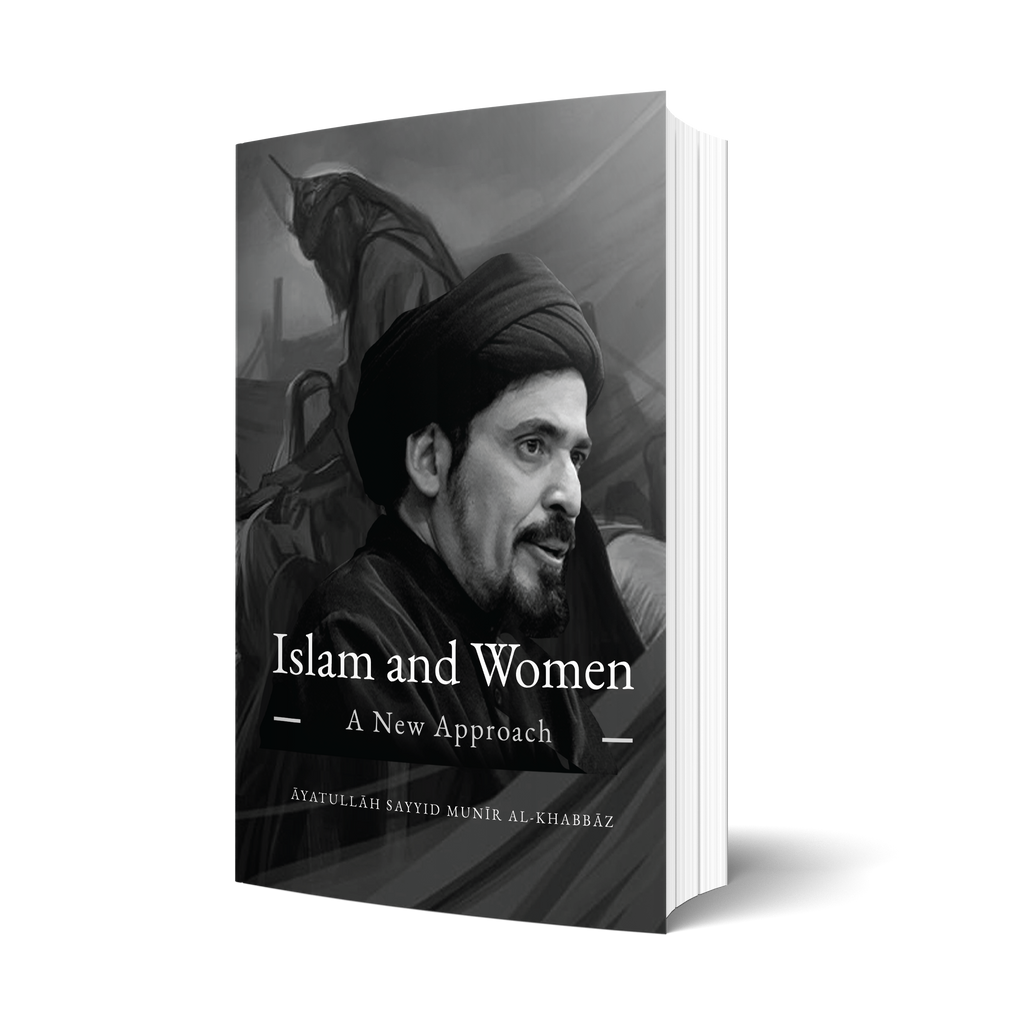Your cart is empty now.
Heighten the Mind
You may also like
al-Burāq Publications Completed Publications
As per usual, Sayyid Munir has produced yer another excellent work of scholarship. Known for his depth of knowledge, precision, & eloquence, the Sayyid has delivered an insightful collection of discussions based on lectures he delivered in twelve Muharram nights. All touching upon gender in Islam though not directly linked to each other, the chapters provide insightful approaches and methodologies of analyzing various topics related to gender. While some lecturers or authors become repetitive when describing Sayyidah al-Zahra ع and her life, the Sayyid truly discusses her in a new & thought-provoking way. May Allah, the Almighty & Majestic, reward the Sayyid for his efforts, bless him and the righteous scholars, allow all of our hearts to open up to receive His divine guidance, & hasten the reappearance of the Imam of the time عج.
This work that covers almost 200 or so pages, is very unique, from several angels
1. The theoretical foundations of the discussion around gender from the Western experience, as embodied in the writings of feminists and radical feminists is discussed, of the likes of Simone de Beauvoir (The Second Sex), Carol Gilligan, Susan James, Alice Rossi, David Buss, Martin Seligman, Christopher Peterson, Philippa Perry (The Book You wish Your Parents had read), John Gottman (Love Lab), Suniya Luthar (Resilience and Vulnerability - Adaptation in the Context of Childhood Adversities), John Gray (Men are from Mars, Women are from Venus and Beyond Mars and Venus), Mary Wollstonecraft, Daniel J. Seigel and Payne Bryson (The Whole Brain Child), Ai’sha bint al-Shati (Zaynab Batalat Karbala)
2. The primary intent of the text is to look through the lense of practical foundations, by examining the life of Lady Fatima al-Zahra (sa), and through her lense, look at how gender prescriptions are experienced, between her-self, her father, the Prophet Muhammad (s) himself, her husband, the Imam Ali (a), her children, from Imam al-Hasan (a), Imam al-Husayn, Seyedda Zaynab (sa), and lastly, the Community of Muhammad (S) at large (through the Sermon delivered in her support of her claim of the Fadak property). This is where theoretical knowledge meets practical knowledge in all of it’s manifestations (historical, psychological, economics)
3. The entire work is premised on constructing Quranic narratives, as one realizes that there are over 225 Qur’anic prescriptions in a 200 page work, covering a whole range of issues around Gender, the Self, raising Children, Quranic laws embedded in the Shar’iah with respect to inheritance, complementary roles of a Man and a Woman in the family and the society at large.
4. The work also finds itself narrating traditions, i.e. ahadith from the Prophet (s), Lady Fatima al-Zahra (sa), Seyyeda Zaynab (sa) and the 14 immaculate Imams, though not without citation of their sources, while appreciating the juxtaposition of the Quranic narrative with the ahadith narrative.
5. The book is neatly divided into 12 Chapters, each chapter signifying, the start of the 1st day of Muharram through the 12fth in the year 1443 A.H. Here is how the themes are divided
a. Muharram 1st: Biography of Sayyidah al-Zahra (sa) – Between Verification and Sectarian Manipulations (no. of pages 21)
b. Muharram 2nd: Feminism and Gender – A Critical View (no. of pages 12).
c. Muharram 3rd: Women’s Elevated Position in Islam (no. of pages 12).
d. Muharram 4th: The Biological Differences and Complementary Relationship between the Sexes (no. of pages 12).
e. Muharram 5th: Intellectual Heritage in Sayyidah Fatimas Sermon. (no. of pages 19).
f. Muharram 6th: The Symbol of the Perfect Human, Sayyidah al-Zahra (sa). (no. pf pages 23).
g. Muharram 7th: The Successful Figure and the Family. (no. of pages 12).
h. Muharram 8th: The Best Example of Marital Life – Imam Ali (a) and Sayyidah Fatima (sa). (no. of pages 12).
i. Muharram 9th: The Exemplar in Giving Sayyidah al-Zahra (sa). (no of pages 14).
j. Muharram 10th: Two Sides of the Revolt of Justice Sayyidah al-Zahra and Imam al-Husayn. (no. of pages 7).
k. Muharram 11th: The Crown of the Muslim Girl – The Hijab of Sayyidah Fatimah and Sayyidah Zaynab (sa). (no. of pages 12).
l. Muharram 12th: Heiress of Sayyidah al-Zahra (sa) al-Aqila Zaynab (sa). (no. of pages 12).









![Karbalāʾ: The School of Supreme Values [PRE-ORDER]](http://al-buraq.org/cdn/shop/files/IMG-5615_large.jpg?v=1752565881)




